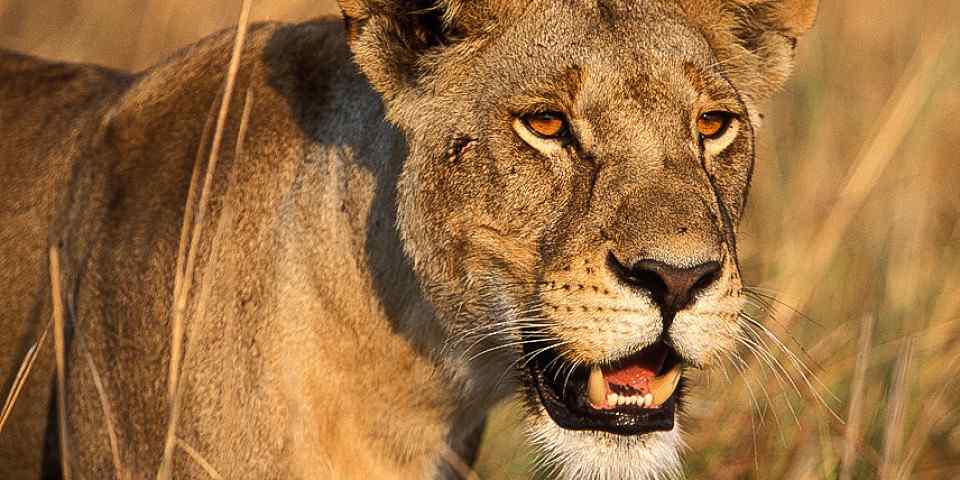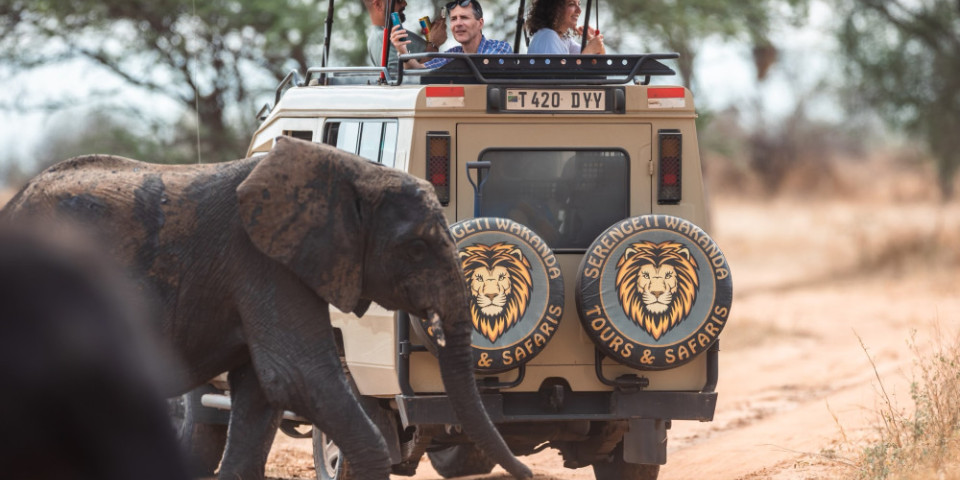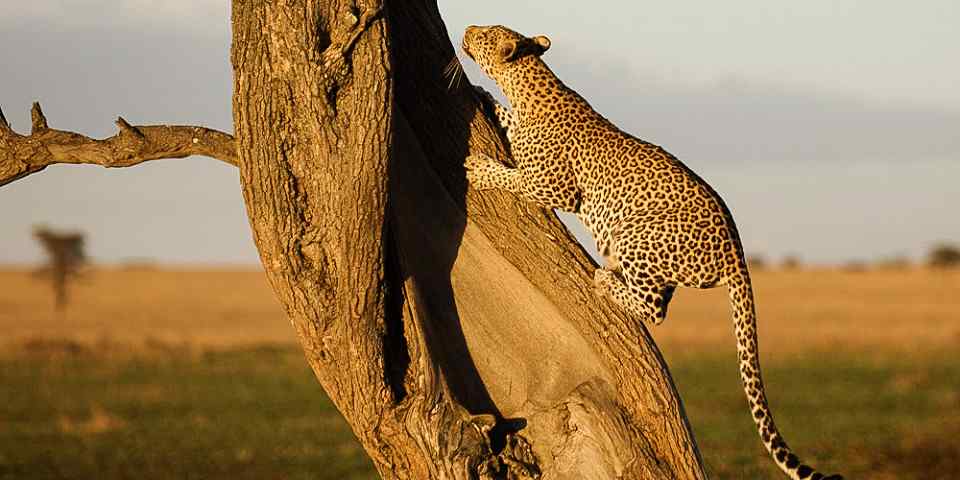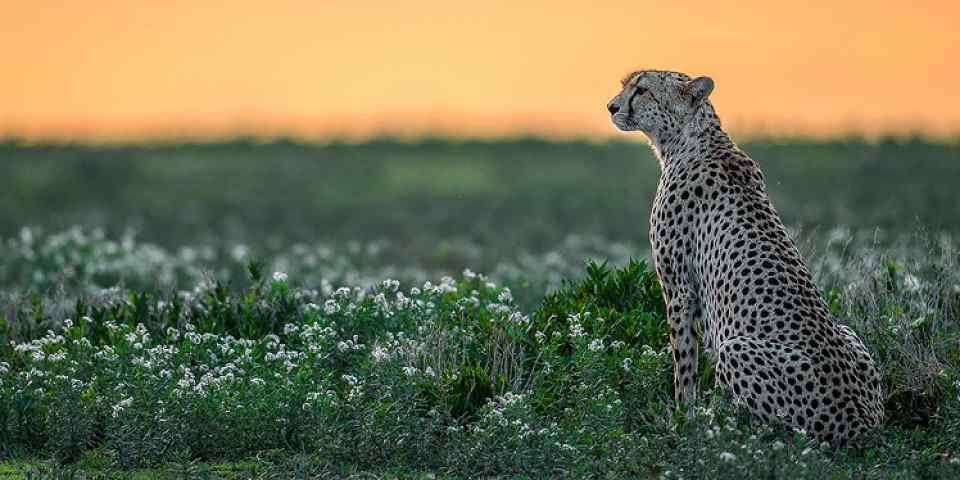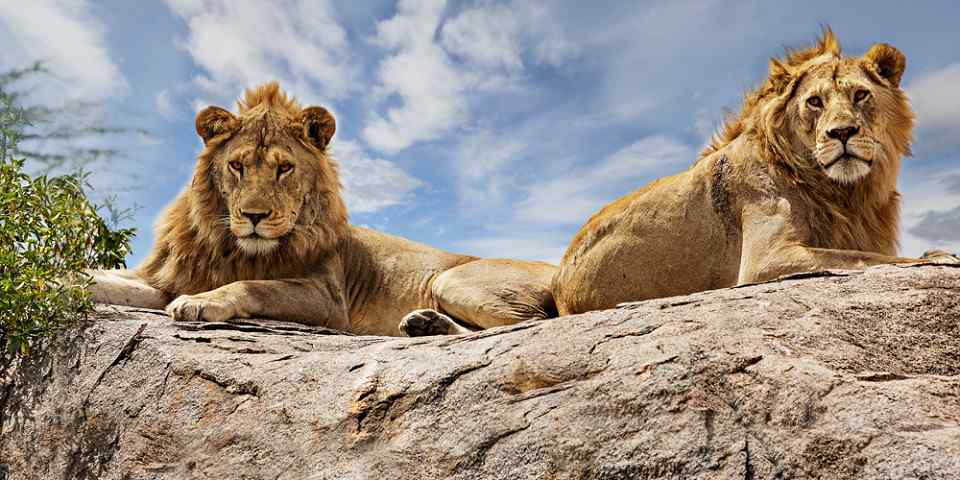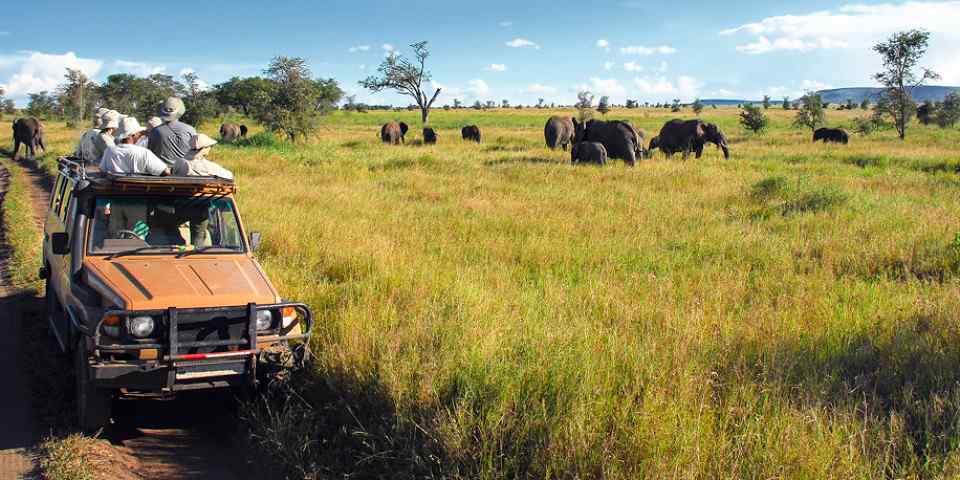Tour Length
Rates in USD $ – Change Currency
Per person, excl. international flightsOperator Rating
Other Tour Features
Filter by Operator
Filter by Accommodation
Serengeti Safari - Compare 3,044 Tours
The Serengeti is one of Africa’s finest safari destinations. Extending over 14,763km²/5,700mi² of undulating plains and isolated koppies (rocky hills), the Serengeti is Tanzania’s oldest, largest and most famous national park. The Serengeti is renowned for hosting an annual migration comprising at least 2 million wildebeest, plains zebra and gazelle – the greatest spectacle of its type in Africa – but the immense plains are also home to unusually dense populations of lion, leopard, cheetah and other predators, while being possessed of a liberating sense of space best experienced on an early-morning balloon safari. A Serengeti safari trip will be a highlight of a visit to Tanzania.
-
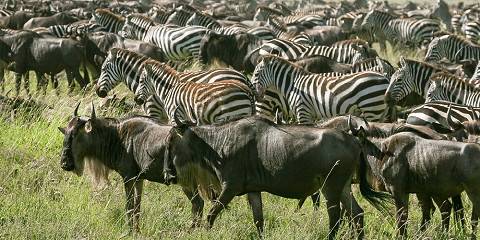
10-Day Perfect Wildlife Safari and Zanzibar Beach Holiday
$3,200 to $3,245 pp (USD)
Tanzania: Private tour
Mid-range Lodge & HotelYou Visit: Arusha (Start), Tarangire NP, Serengeti NP, Ngorongoro Crater, Zanzibar (Tanzania Beaches), Changuu Island (Zanzibar), Menai Bay (Zanzibar), Nungwi (Zanzibar), Zanzibar (End)

African Chitah
4.9/5 – 86 Reviews
-
Top Rated Operator
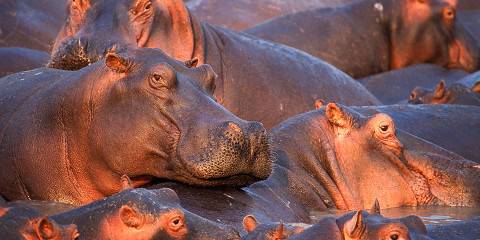
11-Day Tanzanian Safari with Zanzibar Extension
$4,119 to $5,240 pp (USD)
Tanzania: Private tour
Mid-range Lodge & Tented CampYou Visit: Arusha (Start), Tarangire NP, Lake Manyara NP, Serengeti NP, Ngorongoro Crater, Lake Eyasi, Zanzibar (End)

Soul of Tanzania
5.0/5 – 502 Reviews
-

7-Day Tanzanian Safari & Materuni Waterfalls Experience
$1,280 pp (USD)
Tanzania: Shared tour (max 7 people per vehicle)BudgetCamping & Lodge
You Visit: Arusha (Start), Tarangire NP, Serengeti NP, Ngorongoro Crater, Lake Manyara NP, Materuni Waterfalls (Highlight), Arusha (End)

Go Makini Tanzania Expedition
4.9/5 – 70 Reviews
-
Top Rated Operator
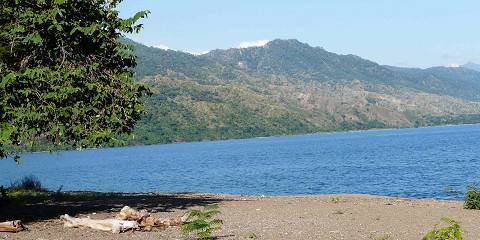
10-Day Ngorongoro, Serengeti, Zanzibar & Others
$4,444 pp (USD)
Tanzania: Private tourLuxuryLodge & Tented Camp
You Visit: Arusha (Start), Tarangire NP, Lake Manyara NP, Ngorongoro Crater, Northern Serengeti NP, Serengeti NP, Zanzibar (End)

Savannah Explorers
5.0/5 – 646 Reviews
-
Top Rated Operator
![7-Day Mid Range Tour to Serengeti Wildebeest Migration]()
7-Day Mid Range Tour to Serengeti Wildebeest Migration
$2,530 pp (USD)
Tanzania: Private tour
Mid-range Lodge & Tented CampYou Visit: Arusha (Start), Tarangire NP, Serengeti NP, Central Serengeti NP, Ngorongoro Crater, Kilimanjaro Airport (End)

Meru Slopes Tours & Safaris
5.0/5 – 462 Reviews
-
Best Seller
![4-Day Mighty Tarangire, Ngorongoro Crater and Serengeti]()
4-Day Mighty Tarangire, Ngorongoro Crater and Serengeti
$1,865 pp (USD)
Tanzania: Private tourLuxuryLodge & Tented Camp
You Visit: Arusha (Start), Serengeti NP, Ngorongoro Crater, Tarangire NP, Arusha (End)

Msangai Adventure Safaris
5.0/5 – 102 Reviews
-
Top Rated Operator

7-Day Northern Circuit with Cultural Tourism Luxury
$2,530 to $2,750 pp (USD)
Tanzania: Private tourLuxuryLodge & Tented Camp
You Visit: Arusha (Start), Tarangire NP, Lake Eyasi, Serengeti NP, Ngorongoro Crater, Arusha (End)

Serengeti Wakanda Tours and Safaris
5.0/5 – 620 Reviews
-
![4-Day Safari Fly in from Zanzibar to Serengeti Park]()
4-Day Safari Fly in from Zanzibar to Serengeti Park
$1,815 to $1,901 pp (USD)
Tanzania: Private tourLuxuryLodge & Tented Camp
You Visit: Zanzibar (Start), Serengeti NP, Ngorongoro Crater, Tarangire NP, Arusha (End)

Professional Safaris
4.9/5 – 81 Reviews
-
![9-Day Best of Tanzania Safari and Zanzibar Beaches]()
9-Day Best of Tanzania Safari and Zanzibar Beaches
$2,574 pp (USD)
Tanzania: Private tour
Mid-range Lodge & Tented CampYou Visit: Arusha (Start), Tarangire NP, Central Serengeti NP, Ngorongoro Crater, Lake Manyara NP, Zanzibar Stone Town (Zanzibar), Zanzibar (Tanzania Beaches), Zanzibar Airport (End)

See Endless Adventures Tanzania
5.0/5 – 53 Reviews
-
Top Rated Operator
![5-Day Mid Range Group Tour]()
5-Day Mid Range Group Tour
$1,595 pp (USD)
Tanzania: Shared tour (max 6 people per vehicle)
Mid-range Lodge & Tented Bush CampYou Visit: Arusha (Start), Tarangire NP, Lake Manyara NP, Central Serengeti NP, Ngorongoro Highlands, Ngorongoro Crater, Arusha (End)

Suricata Safaris
5.0/5 – 2,775 Reviews
-
Top Rated Operator
![4-Day Serengeti Luxury Tour in Tanzania]()
4-Day Serengeti Luxury Tour in Tanzania
$4,099 to $4,299 pp (USD)
Tanzania: Private tourLuxuryTented Camp
You Visit: Arusha (Start), Serengeti NP, Arusha (End)

Wayfairer Travel

4.8/5 – 184 Reviews
-
Best Seller
![8-Day Great Migration Safari]()
8-Day Great Migration Safari
$3,135 pp (USD)
Tanzania: Private tour
Mid-range Lodge & Tented CampYou Visit: Arusha (Start), Tarangire NP, Central Serengeti NP, Northern Serengeti NP, Serengeti NP, Ngorongoro Crater, Foothills of Mt Kilimanjaro, Arusha (End)

Safari Soles
5.0/5 – 340 Reviews
-
Top Rated Operator
![4-Day A Quick Fly-in Safari from Beach to Bush]()
4-Day A Quick Fly-in Safari from Beach to Bush
$2,504 pp (USD)
Tanzania: Private tour
Mid-range Tented CampYou Visit: Zanzibar (Start), Serengeti NP, Zanzibar (End)

Paradise & Wilderness
4.8/5 – 224 Reviews
-
Top Rated Operator
![5-Day Luxury Safari All Inclusive Safari]()
5-Day Luxury Safari All Inclusive Safari
$2,288 to $2,624 pp (USD)
Tanzania: Private tourLuxuryLodge & Hotel
You Visit: Arusha (Start), Tarangire NP, Serengeti NP, Lake Manyara NP, Arusha (End)

African Big Cats Safaris

5.0/5 – 483 Reviews
-
![4-Day Private Camping Tarangire, Serengeti & Ngorongoro]()
4-Day Private Camping Tarangire, Serengeti & Ngorongoro
$1,471 pp (USD)
Tanzania: Private tourBudgetCamping
You Visit: Arusha (Start), Tarangire NP, Serengeti NP, Ngorongoro Crater, Arusha (End)

Lekobe Adventures Safaris
4.9/5 – 51 Reviews
-
![6-Day Embark on Big 5 Safari with Materuni Waterfalls]()
6-Day Embark on Big 5 Safari with Materuni Waterfalls
$1,617 pp (USD)
Tanzania: Private tour
Mid-range Lodge & Tented CampYou Visit: Kilimanjaro Airport (Start), Tarangire NP, Serengeti NP, Ngorongoro Highlands, Ngorongoro Crater, Materuni Waterfalls (Highlight), Arusha (End)

Top Selected Tours
5.0/5 – 78 Reviews
-
![11-Day Tanzania Midrange Safari + Zanzibar Beach]()
11-Day Tanzania Midrange Safari + Zanzibar Beach
$3,674 pp (USD)
Tanzania: Private tour
Mid-range Lodge & Tented CampYou Visit: Arusha (Start), Tarangire NP, Lake Manyara NP, Serengeti NP, Ngorongoro Crater, Zanzibar (Tanzania Beaches), Zanzibar Airport (End)

Seven Wonders Safaris
5.0/5 – 167 Reviews
-
![4-Day Fly in Serengeti from Zanzibar - 2 Nts Four Season]()
4-Day Fly in Serengeti from Zanzibar - 2 Nts Four Season
$3,442 to $3,765 pp (USD)
Tanzania: Private tourLuxury+Lodge
You Visit: Zanzibar (Start), Serengeti NP, Ngorongoro Crater, Tarangire NP, Arusha (End)

Kojuu Safaris Africa
5.0/5 – 64 Reviews
-
Top Rated Operator
![7-Day The Big Five Safari in Tanzania]()
7-Day The Big Five Safari in Tanzania
$2,232 to $2,363 pp (USD)
Tanzania: Private tour
Mid-range Lodge & Tented CampYou Visit: Moshi (Start), Arusha (City), Tarangire NP, Serengeti NP, Ngorongoro Crater, Lake Manyara NP, Moshi (End)

Serengeti Smile
5.0/5 – 580 Reviews
-
Top Rated Operator
![7-Day Memorable Adventure in Tanzania]()
7-Day Memorable Adventure in Tanzania
$2,380 pp (USD)
Tanzania: Private tour
Mid-range Lodge & Tented CampYou Visit: Arusha (Start), Tarangire NP, Central Serengeti NP, Serengeti NP, Ngorongoro Crater, Lake Manyara NP, Arusha (End)

Go Serengeti African Tours
4.9/5 – 295 Reviews
7 Questions About Serengeti Safaris

Answered by
Philip Briggs
Philip is a renowned Africa expert and author of many Bradt guidebooks to African destinations, including the guide to Tanzania.› More about Philip
7 Questions About Serengeti Safaris
 Philip Briggs
Philip Briggs
When is the best time to see the great migration?
“The migration through the Serengeti follows a reasonably predictable annual cycle, but there is also variation from one year to the next, dependent mainly on rainfall. If you are looking to see a horizonless column of braying wildebeest on the move, aim for the Western Corridor around June and July, when the migration heads towards the south bank of the Grumeti River before crossing it. More reliable for river crossings is the far north of the park around September, when massive herds make the treacherous crossing from one side of the Mara River to the other with logic-defying regularity. Over December to April, the wildebeest disperse into the southeast Serengeti, which is the most accessible part of the park from Arusha, but might still be seen in herds that stretch from one horizon to the other. These southeastern plains are the main wildebeest calving grounds, with peak calving season usually centered on January and February, a phenomenon that attracts high predator concentrations.”
1What opportunities are there to meet local Maasai people?
“If your Serengeti holiday is restricted to the park itself, there will be no opportunities to meet Maasai people. This is because the Serengeti is a national park and people aren’t allowed to live there. That said, practically all drive-in Serengeti safaris pass through Maasai country en route from Arusha, while fly-in Serengeti safari packages usually incorporate a stop at Ngorongoro Conservation Area. In both cases, this offers safari-goers the opportunity to incorporate a visit to a Masaai manyatta (group of huts within an enclosure) into their Serengeti experience.”
2How can I avoid the crowds on a Serengeti safari?
“The Serengeti is a vast reserve and it doesn’t usually experience the kind of crowding you get in the far smaller Masai Mara National Reserve across the border in Kenya. The one exception to this is the area around the park headquarters at Seronera, where any worthwhile sighting tends to attract a gaggle of safari vehicles responding to radio calls from other driver-guides. In addition, safari vehicles tend to congregate in whichever sector of the park is currently hosting the migration. The best way to avoid this is to limit the time you spend in the vicinity of Seronera, and to split your Serengeti safari package between two areas: one set in the heart of the migration, and the other somewhere unseasonal (for instance the far north between November and June, or the Western Corridor between August and October). It is also worth bearing in mind that April to May is the lowest season in the Serengeti due to the high rainfall, but it can be an excellent time to visit. In addition to being uncrowded, it is a very pretty time of year, and large numbers of wildebeest are usually present in the far south. Note, too, that roads around Seronera tend to be busiest during the peak wildlife-viewing hours of 7:30 AM to 10 AM and 2 PM to 4:30 PM. So, instead of breakfasting in camp, head out as early as possible – game drives are permitted from 6 AM onwards – with a packed breakfast to enjoy that magical first hour of daylight.”
3What animals can I expect to see in the Serengeti?
“The Serengeti is great when it comes to both the variety and volume of wildlife. Over the course of a typical Serengeti safari, you can expect to see lion on a daily basis, and with luck you will also encounter a host of other carnivores including leopard (most common around Seronera), cheetah, spotted hyena, black-backed jackal, golden jackal and bat-eared fox. You might also be lucky enough to see secretive nocturnal creatures such as civet, serval, genet and African wildcat. Also certain to be seen on Serengeti tours are elephant, buffalo, giraffe, hippo, plains zebra, wildebeest, Thomson’s gazelle, Grant’s gazelle, impala, Coke’s hartebeest and warthog. The localized patas monkey and black-and-white colobus are both resident in the Western Corridor. The black rhino is scarce and more likely to be seen in Ngorongoro Crater. More than 500 bird species have been recorded, among them the endemic grey-breasted spurfowl, Fischer’s lovebird, rufous-tailed weaver, Usambiro barbet and grey-crested helmet-shrike. The open plains are good for terrestrial giants such as ostrich, kori bustard, secretary bird and southern ground hornbill.”
› More about the wildlife of Serengeti National park 4How long is the drive to the park?
“Coming directly from Arusha, it is around 300km/186mi to the park headquarters at Seronera. The first half of this drive follows the same surfaced road that runs past Lake Manyara to the main eastern entrance of the Ngorongoro Conservation Area (NCA). The second follows a rough and dusty corrugated track around the Ngorongoro Crater rim and western plains of the NCA. Allow at least six hours for the full drive, and ideally a full day. Note, however, that most Serengeti tours include overnight stops at Lake Manyara and/or Ngorongoro Crater, which helps to break up the trip.”
5What condition are the roads in within the Serengeti?
“By any sensible international standards, the roads are terrible. It’s not a problem when you are on a relaxed game drive, but it can be tough going on longer drives between lodges and camps. If this sounds daunting, or you have a vulnerable back, think about booking a Serengeti safari package that includes flights into the park and between lodges and camps.”
6What are the pros and cons of different accommodation types?
“Several types of accommodation are available on Serengeti safari tours. If you want to keep down costs, the cheapest option is a basic camping safari with a budget operator that will usually supply tents, sleeping bags and other gear, and no-frills meals. Serengeti is also serviced by a number of ‘hotel in the bush’ lodges operated by chains such as Serena and Sopa; these tend to be upper mid-range in price and offer high levels of comfort. They also tend to be designed to close out the bush at night, making them well suited to first-time safari-goers nervous about wildlife encounters. The park is also serviced by innumerable small lodges and tented camps (some permanent, others seasonal in order to follow the migration). These combine a medium to high level of comfort with a genuine bush atmosphere and a high probability of wildlife passing through, especially at night. Generally speaking, these smaller camps have prices that reflect the level of luxury and exclusivity they offer. Whichever option you go for, practically all Serengeti safari prices are all-inclusive and incorporate transport, game drives, park fees, accommodation and food.”
7Serengeti Safari Reviews

Stephen is a travel writer and avid conservationist whose work appears in prestigious magazines such as Africa Geographic and Travel Africa.
A Wildlife Wonderland where Wildebeest Steal the Show
During migration season herbivore populations explode as wildebeest and zebra arrive in their hundreds of thousands. The cacophony that accompanies the plodding herds, drawn forward by the promise of life-giving rain and fresh grazing, is...

Brian is an award winning travel writer, author of safari books and regular contributor to magazines such as BBC Wildlife and Travel Africa.
The Greatest Wildlife Show on Earth
We’re talking about the Serengeti migration, the year-round spectacle of a million wildebeest and maybe 200,000 zebras chasing the rains on an endless journey in search of grass and water. Come in Jan-Feb to see them massed on the short...
 US
US
The Africa of My Dreams
The Serengeti exceeded my sky-high expectations. What a marvel of nature! In two days in the Serengeti we saw about 20 lions doing all varieties of activities, 6 cheetah including one hunting and a couple of the cutest cubs imaginable, many...
 CH
CH
Immense expanses as far as the eye can see. In the center, many herbivores, zebras, wildebeests, giraffes, gazelles, ... many predators, lion, cheetah, leopard, yennes. In the north, at the Mara River, hippos, large crocodiles, etc. If...
 DE
DE
The Serengeti was an absolute highlight of our trip. The vast plains, teeming with wildlife, left us in awe. We were fortunate to witness the Great Migration, which was truly a once-in-a-lifetime experience. The diversity of animals,...
 NL
NL
This is my number one park. There is always a new road to take and to spot another animals as there are so many. We spotted the big 5 and so much more. From a Cheetah posing for us on a rock to going to hunt a Warthog. Unfortunatly for the...

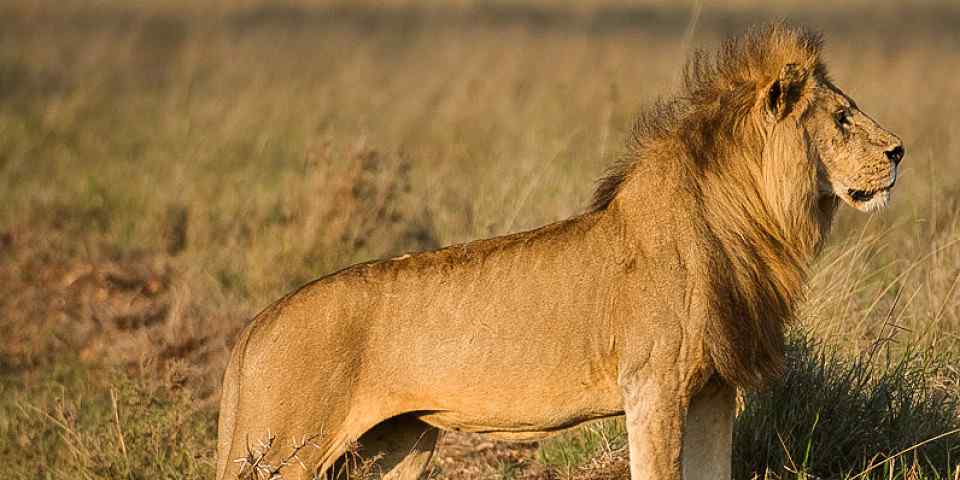
_1813_5e20b935b89f3.gif)
